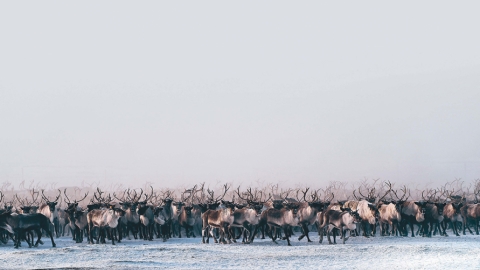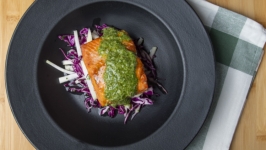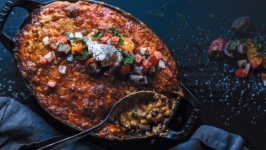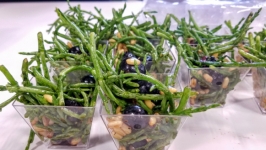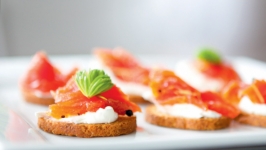Kings in Check
In early summer, king salmon move eastward through the Bering Sea, bound for freshwater. Entering the Yukon River transforms salmon: silver scales and white bellies turn to reddish-purple skin, gills and kidneys adjust to saltless water, jaws lengthen, stomachs atrophy. Kings will not eat for the rest of their lives; they grow enough fat during their four or five marine years to swim upstream to the creeks where they were born to dig egg-nests in the gravel and spawn before they die.
Over the past few years, I’ve boated most of the Yukon River, visiting dozens of rural villages in Alaska and Canada. Out on the water, usually hundreds of miles from a road, it is clear that king salmon transform the river. Their sea-nourished bodies carry so much phosphorous and nitrogen inland that spruce and willow grow three times faster than normal near spawning streams. Flowers time their blooms to the run. Salmon become bears, eagles, blowflies. And from Yup’ik country at the river’s mouths to Tlingit lands in Canada two thousand miles upstream, kings bring nourishment both caloric and cultural to the river’s many Indigenous communities.
But Yukon kings are dwindling. Historically, hundreds of thousands ran every summer, the pulses so strong that Elders remember seeing waves of dorsal fins moving against the current. In 2023, a mere fifteen thousand made it as far as the U.S.-Canada border. This April, regulators in Alaska and Canada signed an agreement that halts all in-river king fishing—commercial and subsistence—for one full seven-year salmon lifecycle.
The causes of the king’s foundering are multiple and intertwined: past overfishing, current bycatch, and the turmoil climate change brings to the Bering Sea. The agencies and groups that manage the fish are a tangle of acronyms and politics. But the effect of salmon absence could not be clearer. Gone is a source of food, one many people have told me makes all the financial difference off the road system. Gone too is the shared work of fishing, the weeks spent at the camps that dot the Yukon shore, places of storytelling and learning that crosses generations through summer’s long days, the breeze full of poplar down.
At a public salmon meeting in Anchorage, Pamela Blanchard—a citizen of the Little Salmon Carmacks First Nation in the Yukon territory—held back tears as she described how the future of her culture “depends on the river and the salmon.” The lack of people’s ability to fish, she explained, “breaks the bond” between humans and kings. In testimony from up and down the Yukon, Alaska Native and First Nations representatives spoke of their hope that a seven years’ rest will let the kings return. They need to: salmon transform the river, and they transform us.









